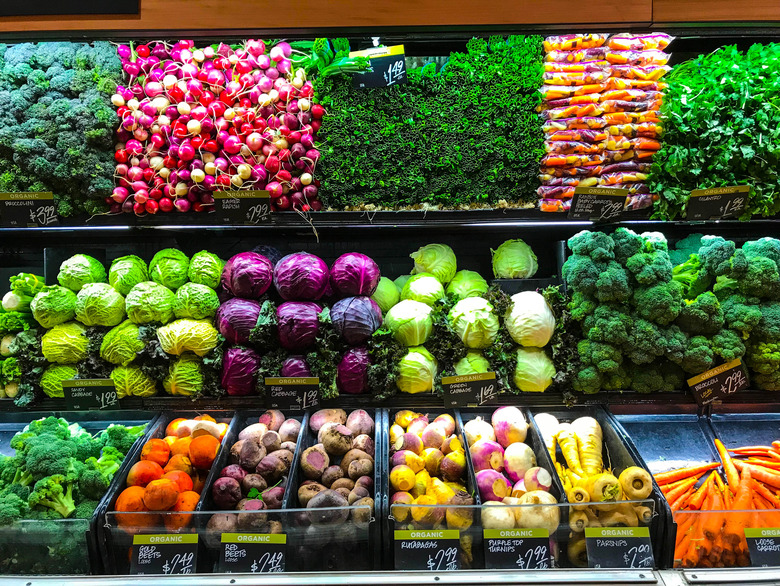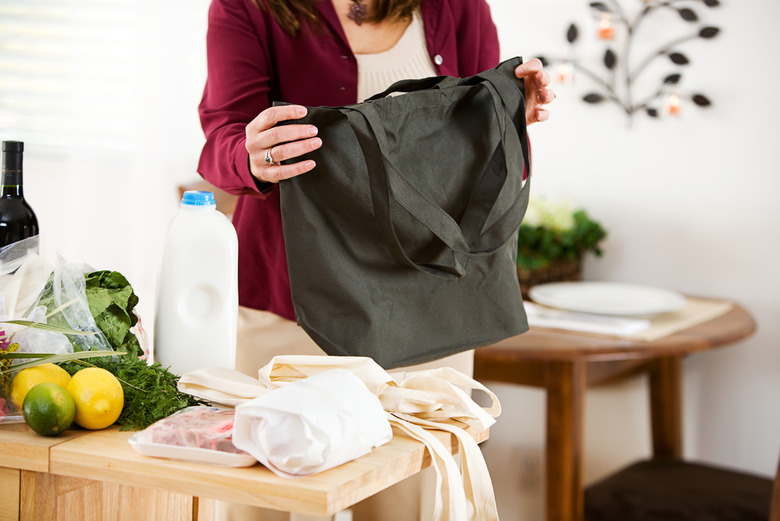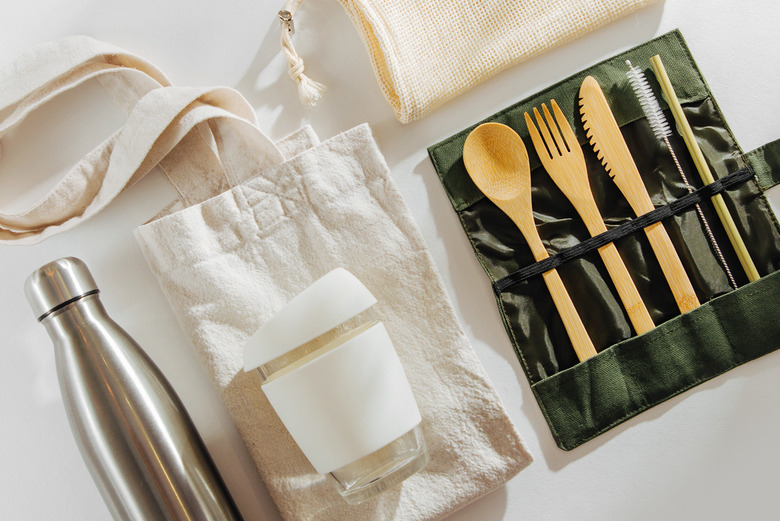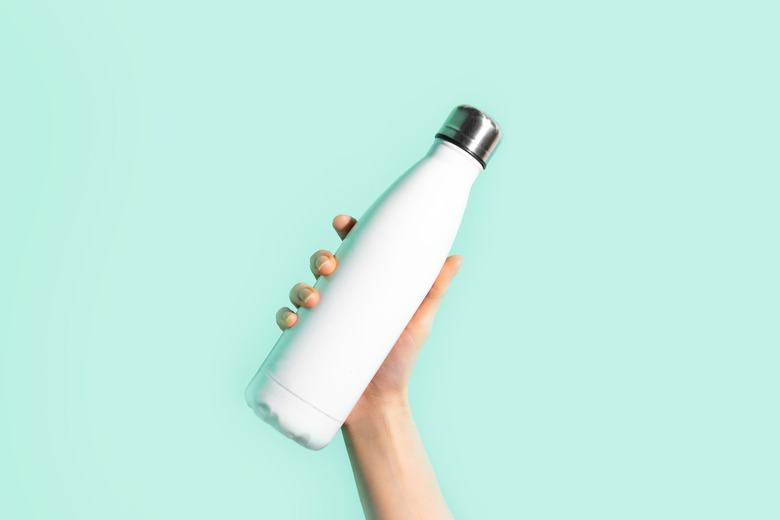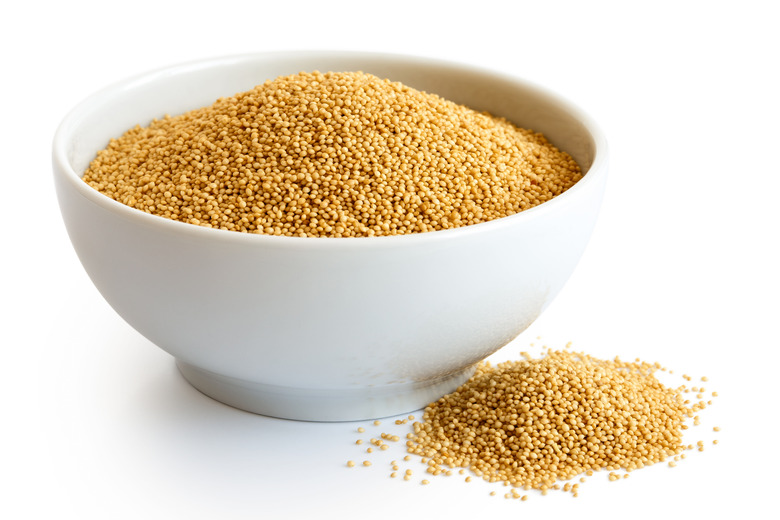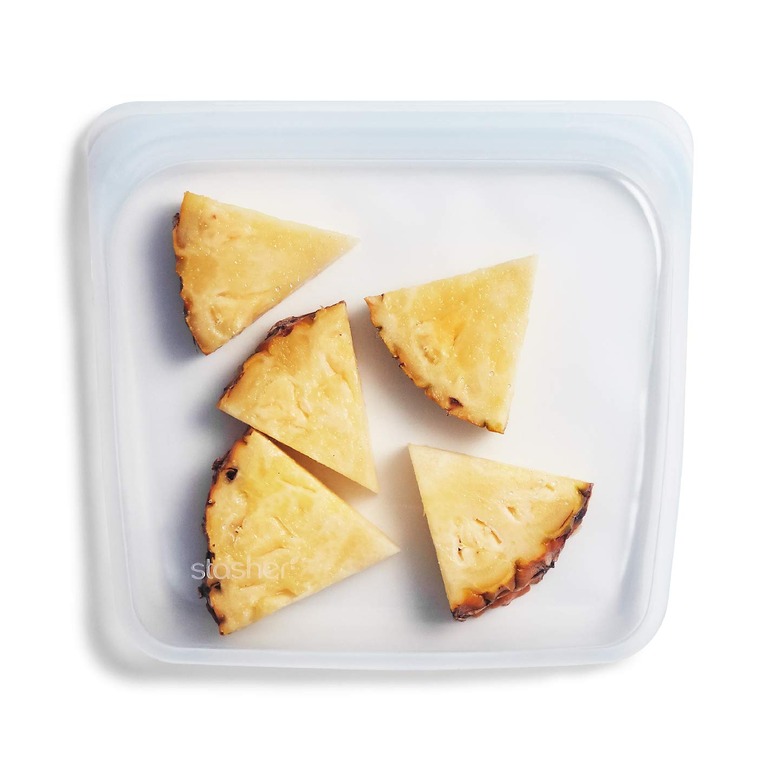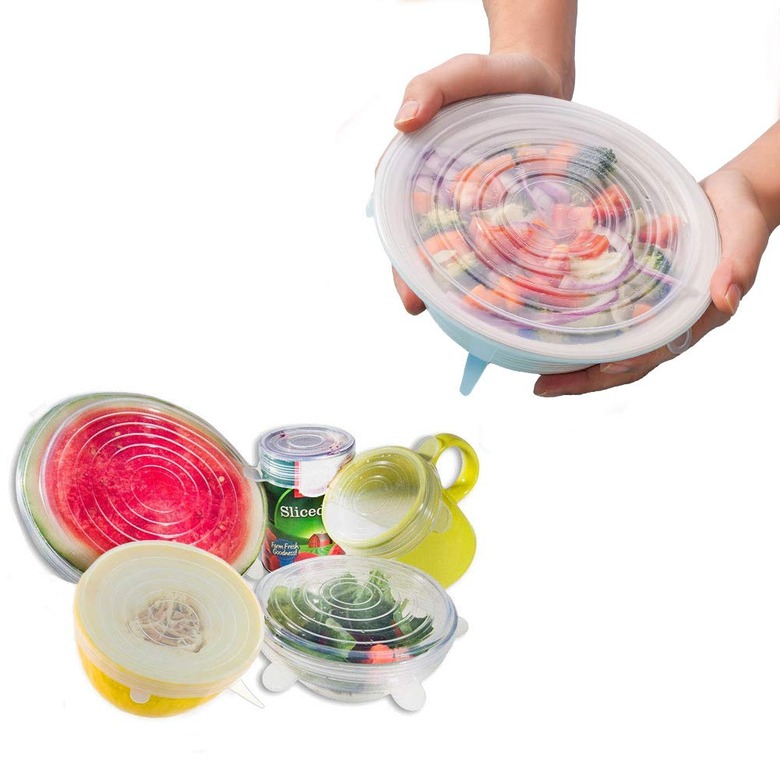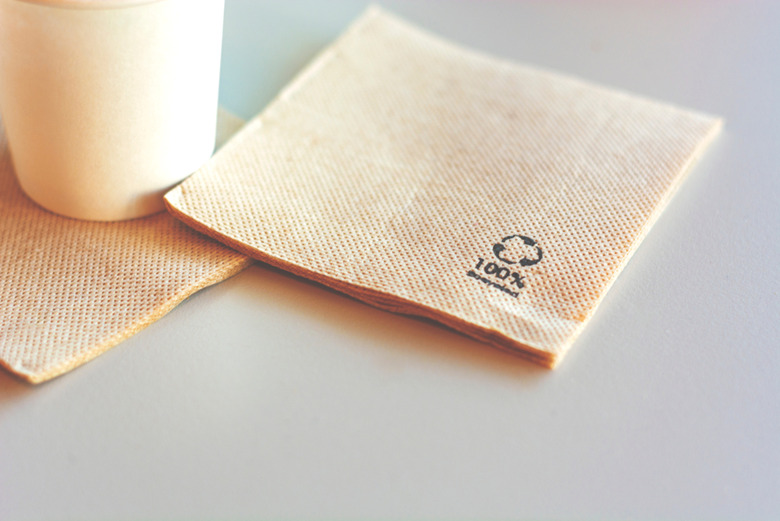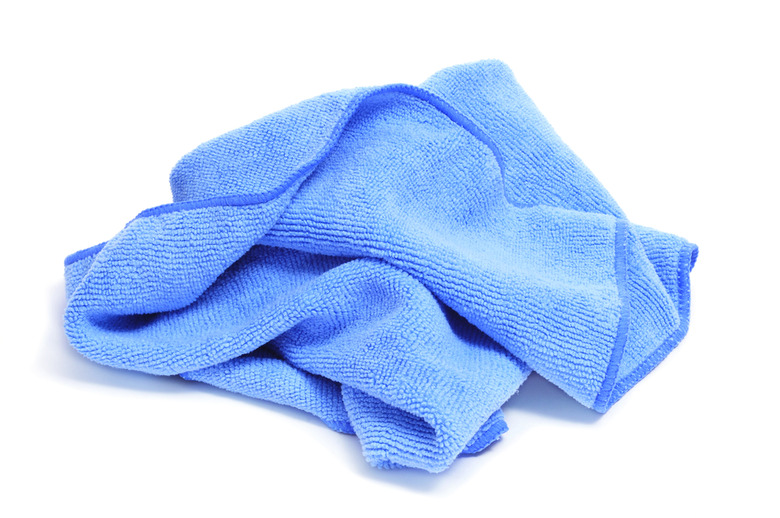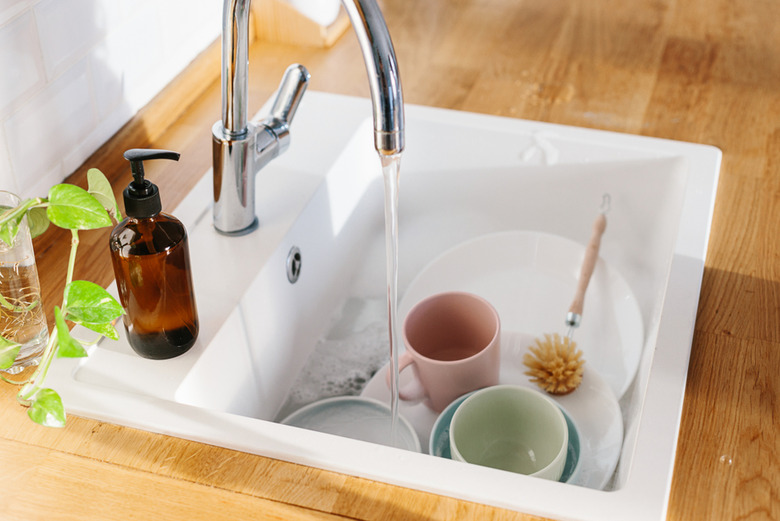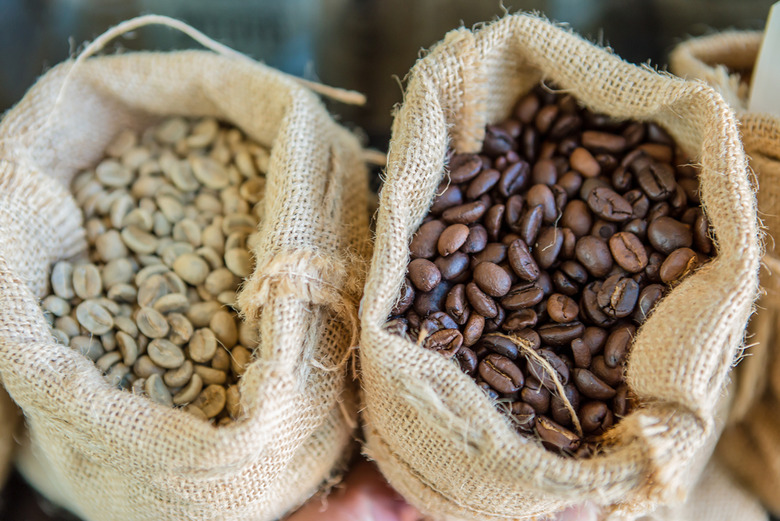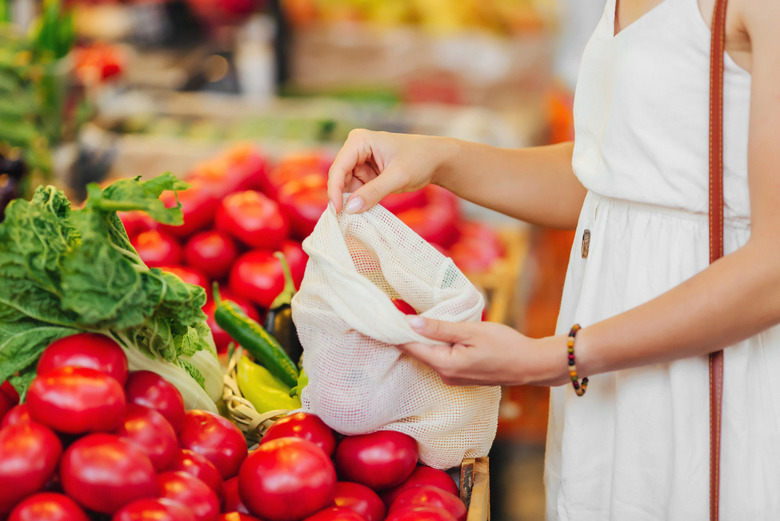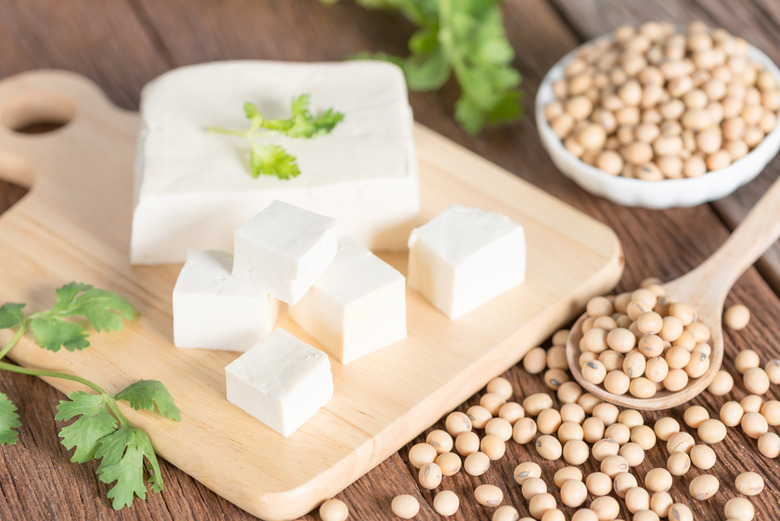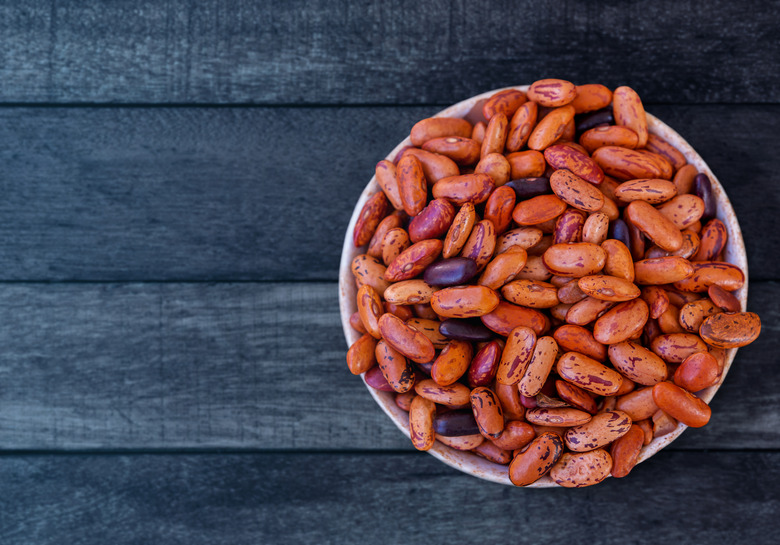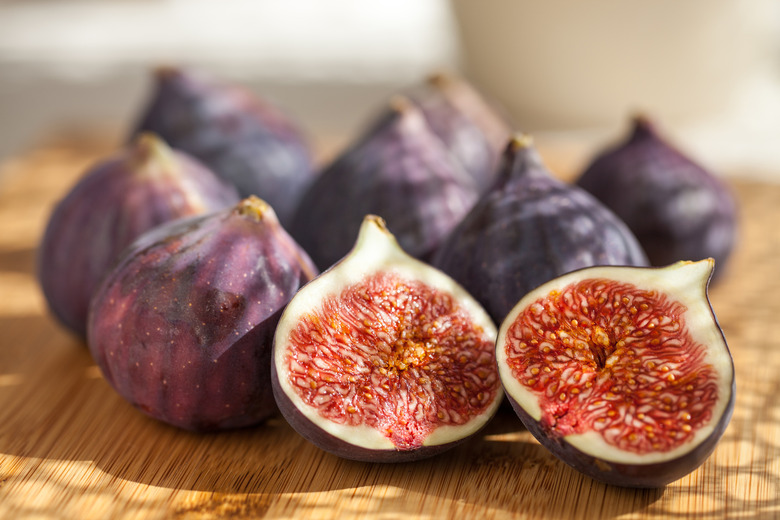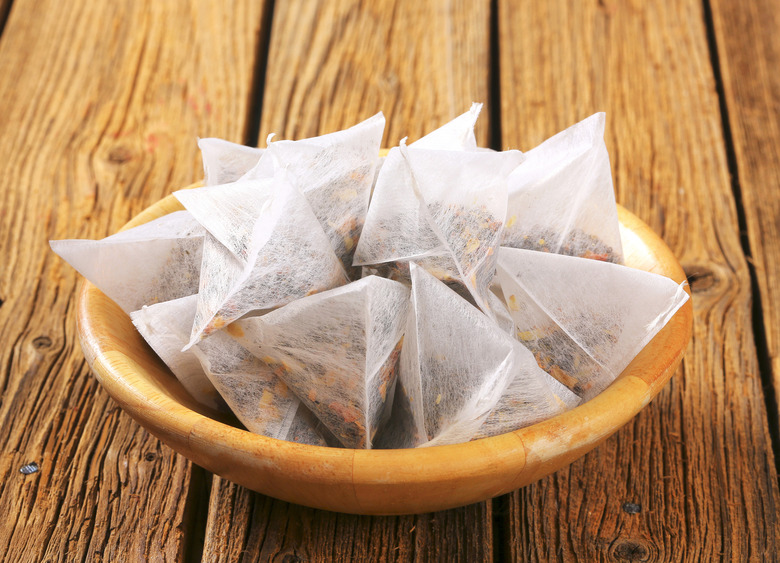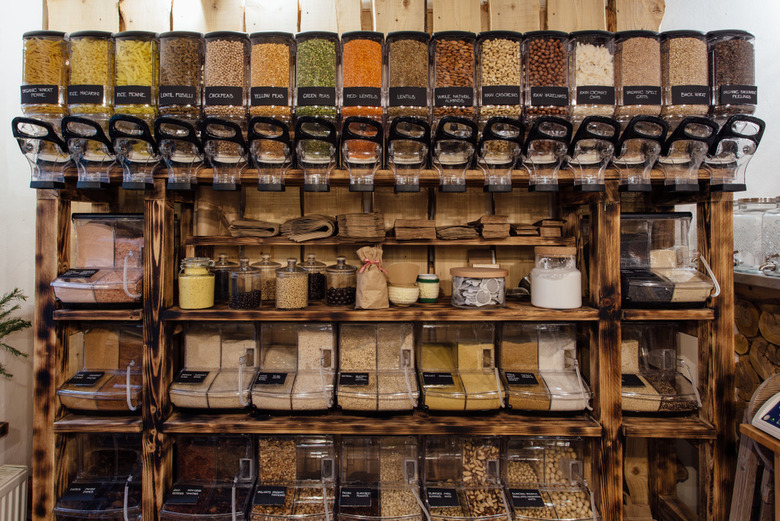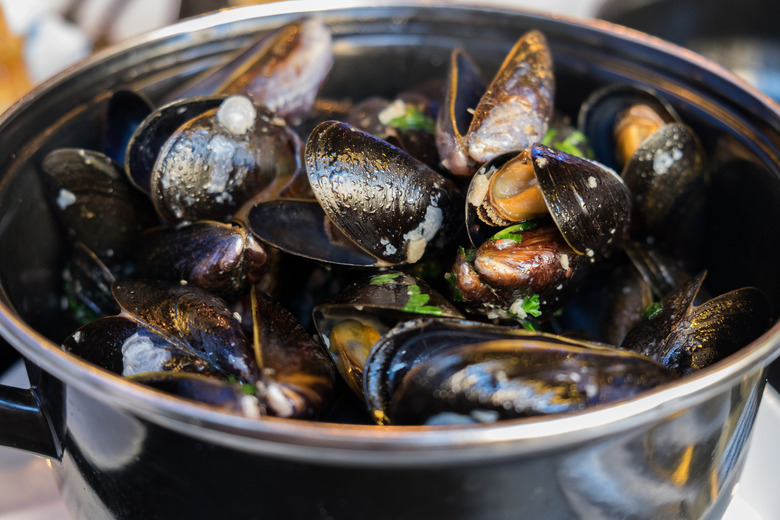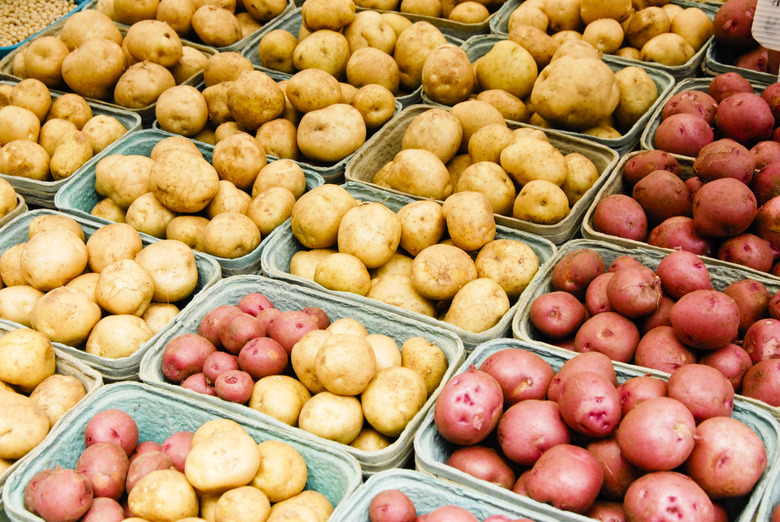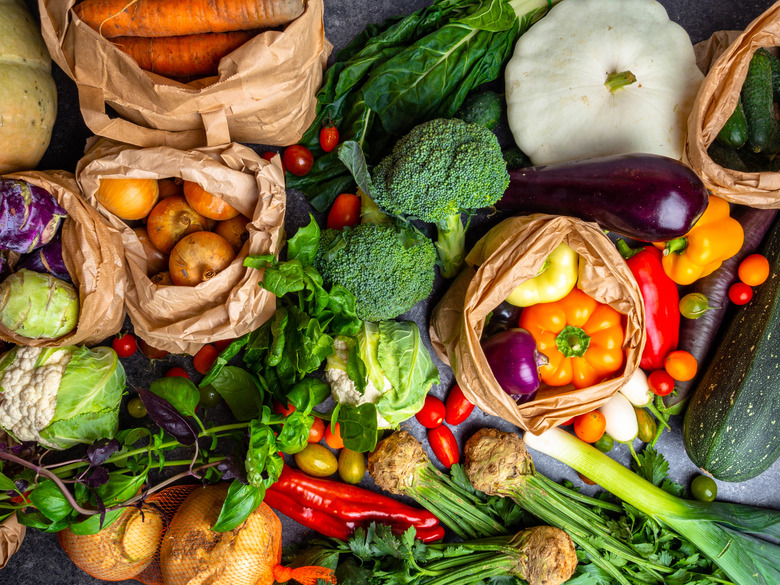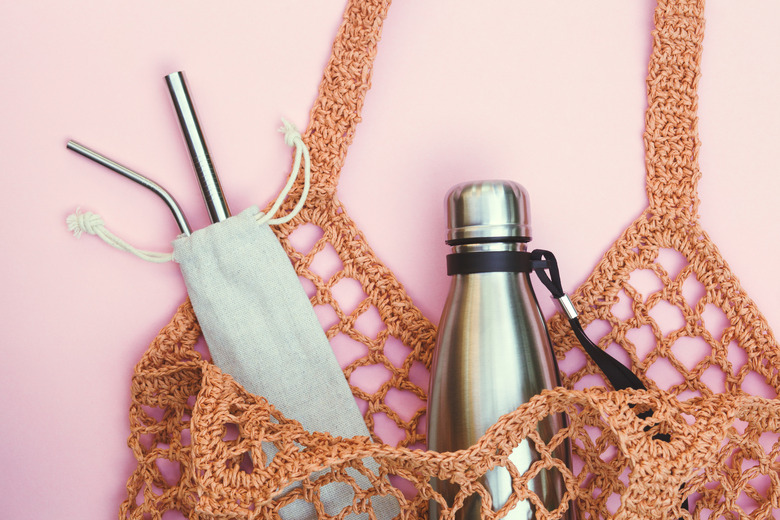The Most Eco-Friendly Things You Can Buy At The Grocery Store
A more environmentally conscious lifestyle starts with what goes into a grocery shopping cart, whether online or at the store. You might be surprised at how efficiently you can help the planet by making some simple changes to your shopping list and choosing to buy more of these eco-friendly grocery store items.
Before you even head to the grocery store, grab your reusable tote bag
If you don't have a reusable bag yet, most grocery stores sell them near the checkout aisle. According to the Center for Biological Diversity, it takes nearly 500 years for one plastic bag to degrade in a landfill. And instead of breaking down completely, the bags photo-degrade and become microplastics that absorb toxins and contribute to environmental pollution. The organization also notes that Americans use 100 billion plastic bags a year, which requires 12 million barrels of oil to make. Ditch plastic for good and stock up on a reusable shopping or tote bag. If you learn to become an efficient packer you probably won't even need too many of these. Consider keeping them in your car so you never forget.
Bamboo utensils
Bamboo utensils are becoming easier to come by at grocery stores and they're pretty affordable, too. Instead of plastic utensils that have to be thrown out after every use, bamboo utensils can be washed and reused. As a plant, bamboo is really helpful to the environment. It produces 40% more oxygen than trees and it doesn't die when it's cut, so it doesn't have to be reseeded. Bamboo holds the Guinness World Record for fastest-growing plant.
Reusable water bottles
Based on an analysis done by Penn State, researchers discovered that Americans spend over $11 billion every year on bottled water. Not only will reducing plastic bottles help you save money, but it will also contribute to saving the environment. According to the Container Recycling Institute, more than 60 million plastic bottles end up in landfills and incinerators every day, and the Environmental Protection Agency's records indicate that the country's landfills received 35 million tons of plastic in 2017. Grocery stores are lined with reusable options — pick one next time you're out shopping.
Amaranth
Amaranth is the ancient pseudo-grain you may not have heard of, but should be eating. It's a resilient plant that can be grown in many different soil conditions and at any elevation, meaning it is grown using little water. Like quinoa, amaranth is packed with protein and boasts quite a few brain-boosting nutrients.
Reusable silicone food bags
You can find these at some of the best grocery stores in the country and you can definitely find them online. These 100% silicone reusable food bags are a greener alternative to disposable sandwich or ziplock bags and already an Amazon best-seller. And not only are they a more sustainable option to single-use plastic, but they are also leak-proof, freezer-friendly and microwave and dishwasher safe. The only catch is they could cost you more than $10 a bag.
Reusable silicone lids
Silicone lids are stretchable, washable and reusable, so you'll no longer need to use single-use plastic wrap to cover leftovers. You can fit a silicone stretch lid over almost anything as they come in a number of sizes. The smallest options can fit over a bottle or jar, and other sizes can stretch over large bowls, plates and food storage containers that are missing their appropriate lids.
Unbleached paper towels
Dishcloths are among the dirtiest things in your home, which is why many people probably prefer to wipe up a mess with a paper towel. Paper towels might be the most difficult thing to give up in the kitchen so you can start with small steps. Instead of buying bleached white paper towels, switch to those that are unbleached and made from 100% recycled material, but do note that these will be more expensive. It would be better to ditch the roll entirely, but this is absolutely more eco-friendly than a typical roll.
Microfiber dishcloths
Likewise, if you're trying to transition to sustainable paper towel options, try using microfiber cleaning cloths. Instead of reaching for a paper towel sheet, you can use these washable, reusable cloths for spills, messes and to wipe down countertops on a daily basis. And it's a good idea to stock up on dishcloths as they should be swapped out regularly.
Eco-friendly dish soap
The case for using an environmentally friendly and more natural dish soap is pretty clear: harsh chemicals are not good for us or the earth. When soap goes down the drain, it seeps into our sewage system and waterways. According to an extensive report by Toxics Link, which is based in India, an antibacterial and anti-fungal agent called triclosan, found in some soaps, and detergents, has been frequently detected in lakes, rivers and sea water. Consequently, triclosan gets collected in aquatic ecosystems and can contaminate food chains. It is known to have effects on both humans and animals. Next time you run out of dish soap, be more mindful of what you replace it with, even if it costs a few more bucks.
Fair-trade items
Purchasing products that are fair trade certified, like coffee beans, tea, chocolate and grains is an ideal way to be more sustainable in your everyday life. It encourages environmentally friendly production methods and ethical working conditions for laborers and farmers. Look for the "Fair Trade Certified™" label on products you regularly buy, because if you need a bag of coffee beans, it's a great opportunity to promote better environmental practices at the same time.
Organic produce
Whenever possible, eat sustainably by choosing organic — even if you switch out just a few of your regular items for their organic counterparts. According to the USDA, organic means that food is grown and processed according to specific guidelines that require strict monitoring of things like soil quality, pest and weed control, animal-raising practices and use of additives.
Organic tofu or other meat alternatives
If you're looking for an eco-friendly alternative to meat, organic tofu is a solid option. Soybeans require far less water and feed to produce than meat, and buying the organic variety ensures that no GMO crops or synthetic chemicals are being used. However, not all tofu is created equal — soy production is responsible for a large amount of deforestation and not always environmentally efficient. That's why it is especially important to read the labels and find out where the soybeans were sourced from.
Beans
Beans and legumes like chickpeas, kidney beans, fava and peas are among the most eco-friendly pantry staples you can buy in the grocery store. These nutrient-dense, naturally gluten-free and inexpensive sources of healthy plant-based protein are good for you and less destructive to the environment. In fact, farming them actually has a positive impact on the ecosystem. In research published in Frontiers in Plant Science by an international team of scientists, the agriculture of beans increased the amount of nitrogen available to plants and reduced the need for fertilizers.
Figs
Figs are a naturally sustainable crop. The trees thrive in dry and sunny weather, do well even in poor soil conditions and require much less water than other fruit trees. Not only do they survive in inhospitable surroundings, but they also provide essential shelter to various animals and even help cool down the nearby habitat.
Compostable tea bags
If you're a tea drinker and enjoy the diverse and global flavors of the calming drink, look for tea bags that are biodegradable. This may require some research, but most brands will offer this information on their websites. By purchasing biodegradable tea bags, you can drink your tea and compost it instead of tossing your tea bag into the trash. Compost is organic material like eggshells and food scraps that can be added to the soil to help plants grow.
Bulk food items like nuts, seeds
Items like granola, nuts, dried fruits, seeds and grains often come in plastic or cardboard packages. But you can usually find the same item in the bulk foods section of the store and use your reusable bag or jars to take them home. This is a great way to cut out all of the unnecessary material and still stock up on your favorite snacks.
Mussels
Farmed mussels, both tasty and cheap, are one of the most sustainable seafood items you can buy. Because they filter plankton and microscopic nutrients from the water, they require no feed and can even purify the waters that they're growing in.
Potatoes
Compared to other hard-hitting carbs, potatoes are an eco-friendly gift. According to researchers from Cranfield University in Bedfordshire, England, potato production is more environmentally sustainable than pasta and rice. Load up on the spuds, as there are lots of comforting home-cooked meals you can make.
Seasonal produce
A great way to shop in a more eco-friendly way is to choose as many local and seasonal items as possible. Not only does supporting local farmers and producers impact the economy of your community, but by buying and eating more locally, you can ensure that your food hasn't traveled hundreds and thousands of miles to get to you. For example, the out-of-season berries may have traveled coast to coast in a box truck while local apples may have been purchased from a farm a few miles away. Choosing fruits and vegetables that are in season (in addition to them being fresher) cuts down on a lot of wasteful transportation emissions, which lead to a widening carbon footprint.
Metal straws instead of plastic
According to the National Oceanic and Atmospheric Administration, approximately 8 million metric tons of plastic enter the ocean every year — the weight of almost 90 aircraft carriers. You can purchase washable metal straws for under $12 at most stores and online and avoid buying one of the least eco-friendly things you can buy at the grocery store.
More from The Daily Meal:
20 Things Pregnant Women Should Add to Their Diet
Diet Mistakes You're Making Before Noon
19 Facts About Diet Soda That Might Make You Finally Stop Drinking It
